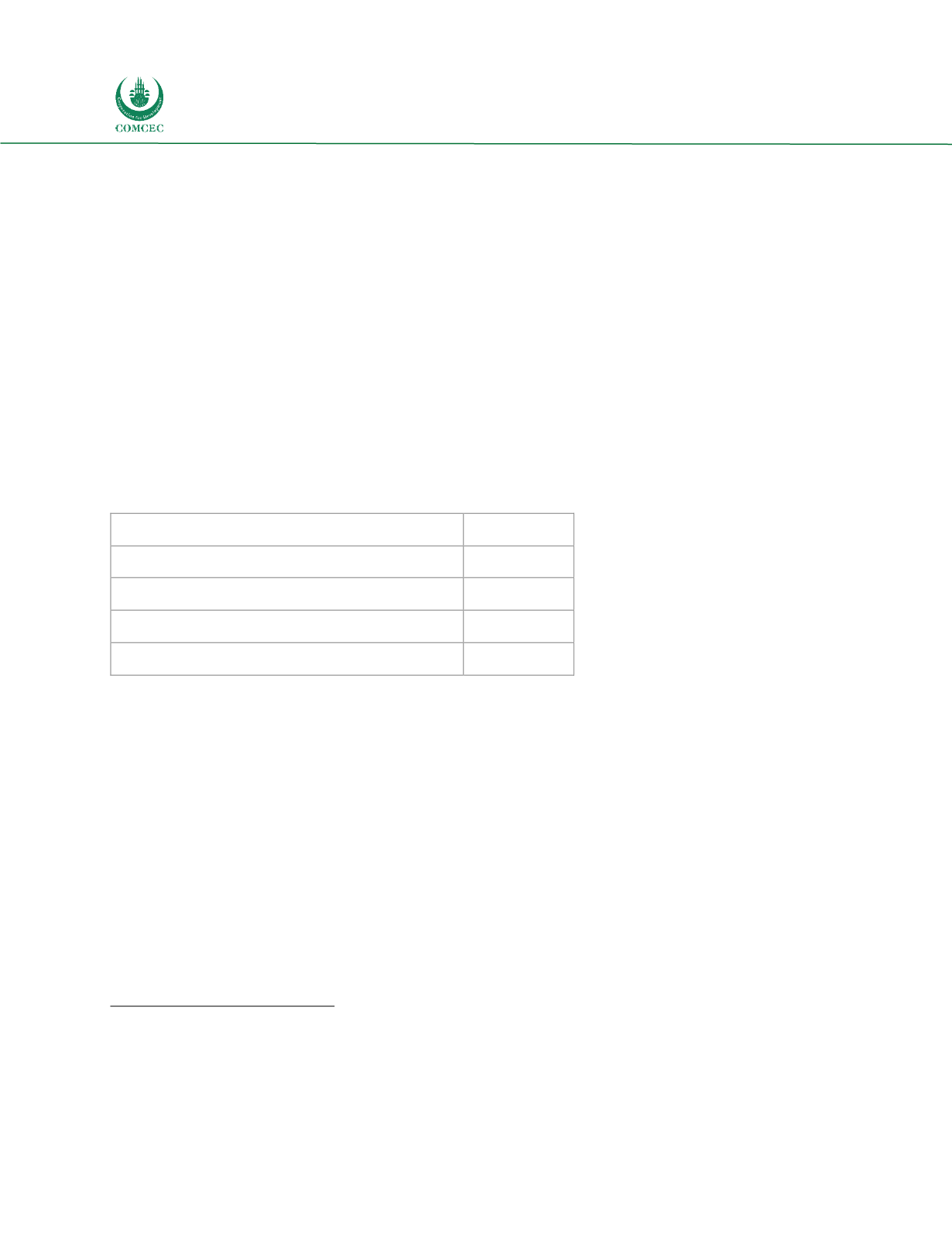

Destination Development and
Institutionalization Strategies
In the OIC Member Countries
98
4.2 Desk Case Studies
4.2.1 Australia
Background
Australia is ranked 7
th
in the World Economic Forum Travel and Tourism Competitiveness Report 2017. Its
international tourist arrivals reached 7.4 million in 2016, and tourism receipts of $28.9 billion.
308
Its top 5
source countries are New Zealand, China, the United States, the United Kingdom, and Singapore.
309
There are
a total of six states and ten federal territories in Australia and the country has 279,000 tourism businesses,
which account for 13 percent of the total number of businesses in Australia.
310
Australia’s travel and tourism industry strength relies on its international openness (it ranks 2
nd
globally in
the Travel and Tourism Competitiveness Report 2017). The country also has a well-developed airport
transport infrastructure (ranked 4
th
) and tourist service infrastructure (ranked 8
th
). The country’s high
natural and cultural resources rankings are led by the large number of world heritage cultural and natural
sites (ranking 6
th
and 11
th
consecutively).
311
Table 16: Australia Competitiveness Statistics
312
International tourist arrivals (million)
7.4
International tourism inbound receipts (billion)
$28.9
Average receipts per arrival
$4,129
Travel and Tourism% of GDP
2.8
Travel and Tourism employment (%)
4.4
Source: UNWTO 2017 Travel and Tourism Competitiveness Annual Report
Destination Development Institutional Strategies
Australia’s national destinationmanagement organizational structure is led by TourismAustralia, which is the
Australian Government agency responsible for attracting international visitors to Australia, both for leisure
and business events. Tourism Australia is focused on international marketing and supports local businesses.
Statewide destination management organizations, such as Destination NSW (New South Wales), are
responsible for state travel and tourism visitor economy performance and citywide destination management
organizations such as The City of Newcastle Tourism and Economic Development Services are responsible for
developing destination management plans at a city level.
308
Crotti, R., & Misrahi, T. (2017). The Travel & Tourism Competitiveness Report 2017.
World Economic Forum, 2017.
336
309
International Tourism Snapshot as at 30 June 2017 [Infographic]. (2017, June). Australian Bureau of Statistics. Retrieved from
http://www.tourism.australia.com/content/dam/assets/document/1/6/y/m/0/2004408.pdf310
Tourism Research Australia, September 2017,
Tourism Businesses in Australia, June 2012 to June 2016
.
311
Crotti, R., & Misrahi, T. (2017). The Travel & Tourism Competitiveness Report 2017.
World Economic Forum, 2017.
336
312
United Nations World TourismOrganization. (2017).
Travel and Tourism Competitiveness Annual Report.
















